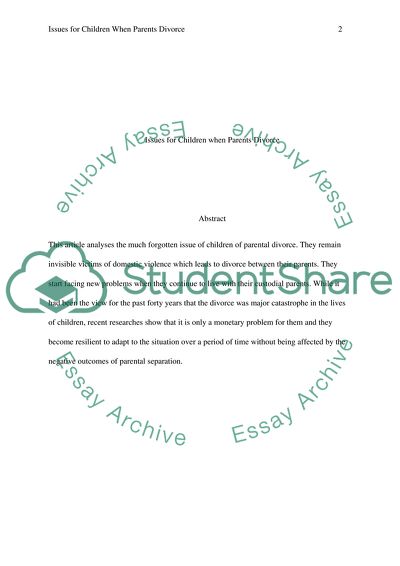Cite this document
(Issues for Children When Parents Divorce Literature review, n.d.)
Issues for Children When Parents Divorce Literature review. https://studentshare.org/sociology/1742551-issues-for-children-when-parents-divorce
Issues for Children When Parents Divorce Literature review. https://studentshare.org/sociology/1742551-issues-for-children-when-parents-divorce
(Issues for Children When Parents Divorce Literature Review)
Issues for Children When Parents Divorce Literature Review. https://studentshare.org/sociology/1742551-issues-for-children-when-parents-divorce.
Issues for Children When Parents Divorce Literature Review. https://studentshare.org/sociology/1742551-issues-for-children-when-parents-divorce.
“Issues for Children When Parents Divorce Literature Review”. https://studentshare.org/sociology/1742551-issues-for-children-when-parents-divorce.


